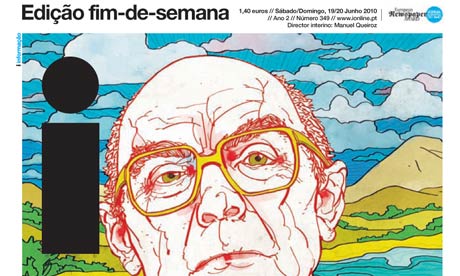Swedes are getting so hooked on social media that for many web-crazy young things reality-TV has all but moved online.
Last night Twingly, the Swedish web company that supplies a blog trackback functionality to newspapers world-wide and last week launched its international spam free blog search engine Twingly.com, aired the first programme of its new reality-series on YouTube: The Summer of Code.
YouTube reality-show
“We have recruited four ambitious interns and given them six weeks to develop a visual search engine for blogs; Twingly Blogoscope,” said Martin Källström, CEO of Twingly.
“Everyone can follow what happens in the project via daily episodes on YouTube.”
The episodes will be uploaded Monday to Friday at 6 PM GMT (10 AM in San Francisco, 19:00 in Stockholm) and the first programme aired last night.
“Openness in this project is a way to show the daily life in the office,” said Källström.
“Generally people are not familiar with the stimulating working atmosphere in a start-up. Hopefully Twingly Summer of Code will inspire more people to join Twingly or other start-ups.”
Media increasingly about conversation
Last week, Twingly launched its search engine Twingly.com to track 30 million blogs all over the world.
Despite this global scope, Källström said Twingly will concentrate on being number one in Europe, working with several different European languages.
“Google has not improved its blog search for more than two years,” he told Journalism.co.uk.
The company has teamed up with newspapers in Spain, Portugal, Holland, Sweden, Denmark, Norway, Finland and South Africa, to show blog links to the news sites’ articles.
Källström added that his hope was for Twingly to be able to take on both Google and Technorati by providing more functionality and driving traffic to bloggers via its media partnerships.
“Media is more and more about the conversation between media and its readers. We see a very strong synergy between mainstream media and bloggers and try to provide a bridge that can improve this synergy,” he said.
Blogs have replaced docusoaps
Twingly’s target group for The Summer of Code will no doubt draw an audience of uber-geeks but a young Swedish reporter recently admitted she was addicted to a very different sort of ‘web docusoap’.
Madeleine Östlund, a reporter with the Swedish equivalent of Press Gazette, Dagens Media, claimed the country’s fashion blogs had replaced docusoaps (link in Swedish).
She confessed she found it increasingly difficult to live without her daily fix of intimate everyday details and gossip from the country’s high-profile fashion bloggers, a phenomenon Journalism.co.uk has described here.
“It is not their blogging about clothes that draws me in, rather it is the surprise and fascination with which I read about these young girls’ private lives. Surprise and fascination about how much they often reveal,” she wrote, citing posts about broken hearts, hospital stays, what they had for breakfast and descriptions of a caesarian birth.
Roll on the Web 2.0 docusoap about dashing media journalists, I say.



